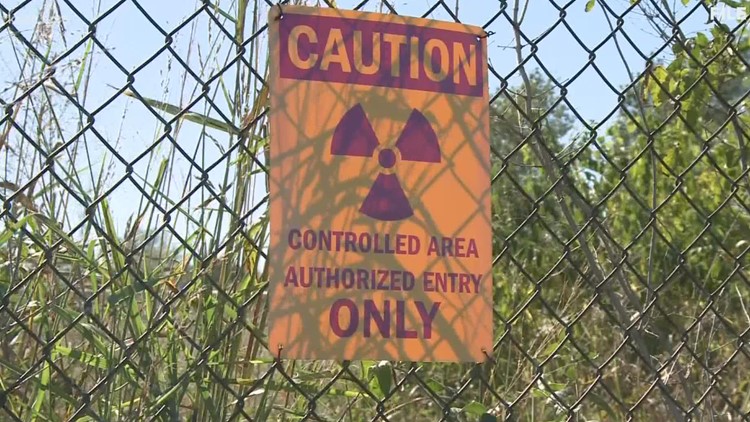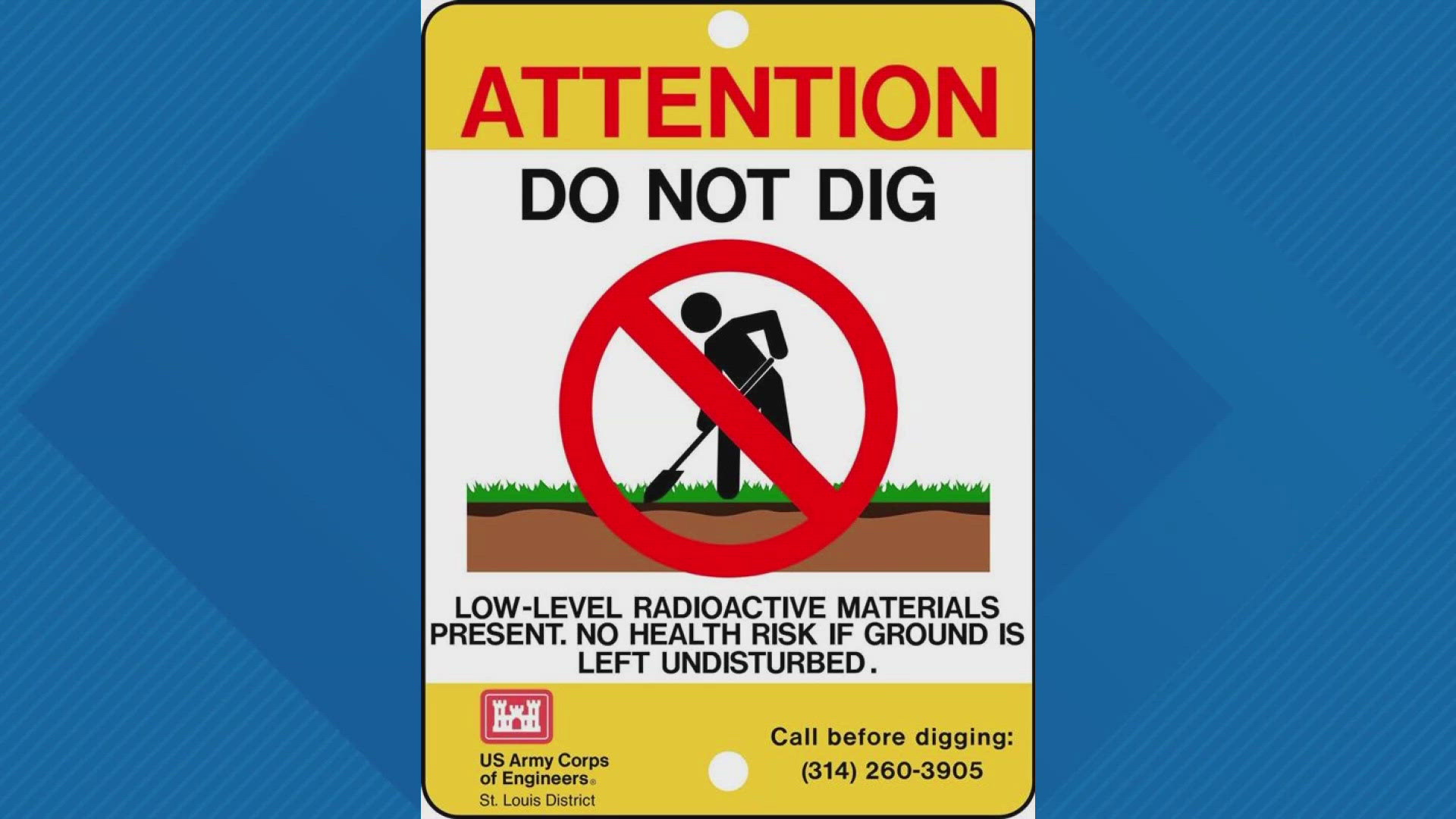Missouri’s chief medical officer on Tuesday said the state needs to raise awareness among physicians about the prevalence of radioactive contamination in the St. Louis area to catch rare cancers.
Dr. Heidi Miller, who last year was named the Missouri Department of Health and Senior Service’s first chief medical officer, spoke to an interim committee of Missouri House members studying St. Louis’ long history of contamination from World War II-era radioactive waste.
“I’m as alarmed as you are,” Miller told the committee.
Miller, who has worked with nonprofit health-care agencies and is a primary care physician, said she once had a patient with rare appendix cancer and rheumatoid arthritis. In 25 years practicing medicine, she’d never seen appendiceal cancer.
“I understand that there are rare, awful things happening,” Miller said. “We need to raise our awareness for that, and we need to study it in order to figure out what to do about it.”
Miller’s remarks came during a four-hour inaugural meeting of the Missouri House Special Interim Committee to Address Health and Environmental Impact of Nuclear Weapons Work.
Chaired by Rep. Tricia Byrnes, a Wentzville Republican, the committee is tasked with studying St. Louis’ long-running radioactive waste problem, collecting testimony from the community and recommending legislation for consideration by the Missouri General Assembly when it reconvenes in January.
The committee’s first hearing included testimony from the U.S. Army Corps of Engineers, Missouri Department of Natural Resources and Missouri Department of Health and Senior Services — along with some affected members of the community.
Byrnes, who swam in a contaminated quarry as a teen and whose son suffered through a rare cancer, said it was beneficial for lawmakers to get to question state agencies outside the time constraints of the regular legislative session. She noted legislators can’t compel action by state agencies, which are part of the executive branch.
“But with a committee,” Byrnes said, “we can compel follow-up workshops, follow-up reports…This is a great format to say Missouri has a problem here, and we need everyone to come together on what we should do next.”
The St. Louis area was pivotal to the development of the atomic bomb in the 1940s and is still grappling with radioactive waste almost 80 years after the U.S. dropped the weapons on Hiroshima and Nagasaki, Japan.
During the Manhattan Project, the name given to the World War II-era effort to create the world’s first nuclear weapons, uranium was refined in downtown St. Louis.
After the war, waste from that effort was trucked to parts of St. Louis and St. Charles counties and dumped in a quarry along the Missouri River and in heaps on the ground. From there, leaking barrels of radioactive material contaminated Coldwater Creek, a tributary of the Missouri River that runs through now-busy suburbs.
In 2019, the federal Agency for Toxic Substances and Disease Registry found that exposure to Coldwater Creek increased the risk of developing cancer for children who lived near or played in the creek.
One of those kids who grew up playing in the creek in the 1970s and 1980s is Kim Visintine, whose son was diagnosed with a rare brain tumor as a newborn. He died at six years old.
And while Visintine attributes her son’s death to Coldwater Creek, she said research can miss cancer clusters because the illness is reported according to the patient’s place of residence at the time they are diagnosed. Her family wasn’t living near Coldwater Creek by the time her son was born. And classmates of hers who suffered illnesses they believe came because of exposure to the creek had also moved away.
Visintine and peers who lived along Coldwater Creek and lost loved ones pushed state and federal agencies until the 2019 study took a closer look at the cancer rates around the creek.
Visintine said she hopes to see Missouri added to the Radiation Exposure Compensation Act, a federal program that, for more than 30 years, compensated miners and individuals exposed to radiation from nuclear bomb testing in the southwest. Lawmakers are trying to expand it to more states, including Missouri, but in the meantime, it has lapsed.
The important part of joining RECA, Visintine said, is gaining access to a federal screening program for radiation-related illnesses. With screening, Visintine said, maybe illnesses would be caught early before they become terminal.
“At the end of the day, we have to help the folks that have been exposed,” she said, “and the way to do that is to keep them from getting the terminal diagnosis.”
While Byrnes said she intended for the meeting to feature more members of the community, the committee was learning so much from the testimony of state and federal agencies that those officials spoke for the bulk of the four-hour meeting.
Ashley Bernaugh was president of the Jana Elementary School Parent Teacher Association when a researcher found radioactive contamination inside the school. She expected to speak Tuesday, but the committee ran out of time.
“I do hope that there will be a follow up that will center community voice on another day,” she said, “but the testimony was absolutely necessary. We do need those folks on the record.”
Rep. Doug Clemens, a Democrat from St. Ann, does not sit on the committee but attended Tuesday’s meeting. He said he knew some members of the community were upset they didn’t get to speak.
Tuesday’s meeting, he said, didn’t get into the “nitty gritty” of contaminated sites in Missouri but provided a good introduction to the issue.
“There are people in harm’s way every day because of this in Missouri,” he said. “It’s intolerable. It’s unacceptable.”
This story from the Missouri Independent is published on KSDK.com under the Creative Commons license. The Missouri Independent is a nonpartisan, nonprofit news organization covering state government, politics and policy.



